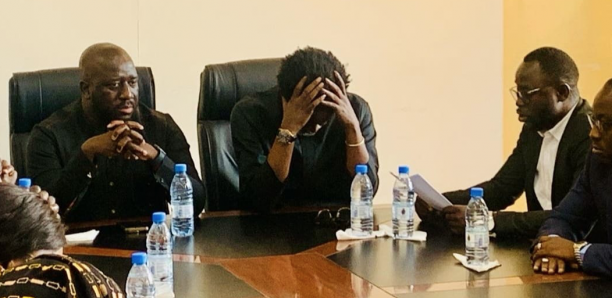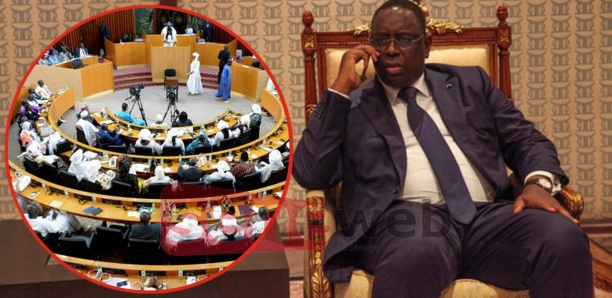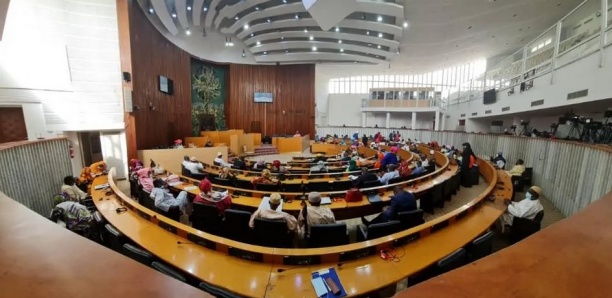
Time and again Western journalists ask superstar Senegalese pop singer Youssou N'Dour, arguably the most successful African musician in history, the same question: Why, despite selling hundreds of thousands of records in the West and collaborating with artists such as Peter Gabriel, Sting, Wyclef Jean and Paul Simon, do you continue to live in Africa?
 |
| West African superstar Youssou N'Dour comes to Tokyo for two shows on Aug. 5 and 6. (c) KO OKABE |
For an African artist, N'Dour has enjoyed unequaled international popularity over the last two decades, thanks to an inimitable tenor singing voice that flutters effortlessly across five octaves and a signature musical style that combines Afro-Caribbean sounds with the driving syncopated rhythms of traditional Senegalese drumming. Given all this, many journalists seem to have difficulty comprehending why he hasn't begun a new life in the lap of luxury in the West.
But N'Dour speaks with great humility of a comfortable life with his family in Senegal, his many charitable activities, and the fact that the capital, Dakar, where he lives, has an international airport that allows him to travel whenever and wherever he wants.
"In Senegal, everything is full," he told The Japan Times in a recent interview while on tour in Germany. "Everything affects me. The weather, the heat, the nature, the people, my people. Even the clay earth. All of these things are a part of my music. They are what makes my music powerful. My music needs Senegal."
This month, Japan residents have the opportunity to get a taste of this place and the sound that was born there when N'Dour performs Aug. 5 and 6 as part of the 22nd Tokyo Summer Festival. His appearance also coincides with the arrival of another legend of Senegalese contemporary music, percussionist and conductor Doudou N'Diaye Rose, who will lead an 18-piece drum orchestra on July 27 and 28.
These concerts offer Tokyo residents a unique opportunity to see for themselves two acclaimed ambassadors of what has become, thanks in large part to their early efforts, one of the most important music scenes in the world.
Senegal lies at the very heart of West Africa, a region that includes other music powerhouses such as Mali, Gambia, Guinea, Sierra Leone, Ghana and Benin. These countries are the home of a disproportionately large number of Africa's most successful musicians; artists that constitute the driving force behind a fast-growing world music industry. It begs the question: What is it exactly about this part of the world that makes for such phenomenal music?
 |
"Every country, every part of the world has something for itself," says N'Dour. "Sometimes you can find oil, sometimes you can find gold. Different countries have their riches. Senegal doesn't have all these economic riches, but we have culture, and our culture is our riches. And in particular we have music."
Experts on music from the region, such as acclaimed London-based Senegalese DJ Dudu Sarr, who compiled the contemporary African music for the Africa Remix exhibition (showing until Aug. 31 at the Mori Art Museum), point out that West Africa has long been the home of diverse, but nonetheless deeply interconnected peoples and traditions.
"Music has always been borderless in that region of the world," Sarr says. "In many ways I think it is the powers that be that, for marketing purposes, create categories that they can use to better feed consumers and control markets. But you put two musicians together and they will come up with something different. That exchange is constantly happening in West Africa."
The result is a medley of musical output from Dakar to Abuja by artists who share in common the use of traditional instruments and rhythms that have been traded back and forth among the region's people for millenniums, and an openness to outside influence that runs the gamut from North African and Middle Eastern music, to Caribbean sounds, African-American jazz and Delta blues.
In Senegal, N'Dour is the exemplar of this particular mix of tradition and modernity. As with many musicians from the region, he was born into the griot caste of the Wolof people, traditional storytellers who sing the praises and history of people and places, not unlike the Homeric poets of ancient Greece.
But while he was intimately acquainted with the rich history of griot performance and song, the young N'Dour also found himself immersed in the newly arrived sounds of jazz, blues, rock and Afro-Ca- ribbean music that spilled out of Dakar's nightclubs after Senegal won its independence from France in 1960.
After getting his start singing at informal public gatherings, by the middle of the '70s N'Dour had joined the famous Star Band, the house act at Dakar's groundbreaking Miami Club. He led the group to develop a style that fused the syncopated beats characteristic to Senegal's sabar drumming with Afro-Cuban and traditional Wolof music, and Western amplified instruments such as keyboards and guitars. The result was a fast, spirited and immensely danceable sound that became known as mbalax.
 |
| Senagalese compatriot Doudou N'Diaye Rose and (below) members of his sabar drum orchestra. |
 |
The invention of mbalax, along with lyrics deeply concerned with current social issues and his electrifying stage presence, propelled N'Dour to wealth and fame as he performed throughout West Africa and produced cassettes for the regional market. It would also bring him to the attention of the ever-perceptive Peter Gabriel, who N'Dour joined on tour after the 1984 release of his crossover record "Immigres."
But N'Dour's subsequent success in repackaging his sound for the world music market has by no means won him unconditional praise. Many purists have claimed that he abandoned his West African roots to make a string of overproduced albums catering to the Western market, turning his back on the basics that made his music so compelling in the first place.
Indeed, N'Dour himself seemed to recognize this criticism. For many years he worked on two distinct artistic footings, recording one set of songs for release internationally, while continuing to produce roots mbalax albums to be sold on cassette back home and playing live every weekend he was in Dakar to packed houses at his nightclub, Thiossane. In recent years, however, N'Dour appears to have become more comfortable moving between the two markets that continue to define his career. His last two albums, "Nothing is in Vain" and "Egypt," a collaboration with Egyptian Fathy Salama that won a Grammy for best contemporary world music album in 2005, were released in the same form in Africa and abroad and have been well received.
"When my international career began, it was a new experience for me," N'Dour says. "I was trying some new things with the Western side. Over time I just realized better how there are things that are really close, and how there are also things that are very different between the two styles. Now with my work, I have found ways to bring the two together."
For DJ Dudu Sarr, N'Dour's open-mindedness, his constant willingness to incorporate new influences into his music and test new markets, mean he will necessarily take risks that do not always work out.
"Artists like Youssou move on, learn new things and embrace new strategies," says Sarr. "They go on the road, working, learning, trying new things and making mistakes. The day he stops doing that, the day he stops exploring, is maybe his retirement day."
Doudou N'Diaye Rose has not enjoyed the same kind of international popular success as his younger contemporary, largely because the transformative and driving power of the rhythms he creates with large groups of sabar drummers are difficult to appreciate on record.
But while he makes few CDs, Rose was one of the first Senegalese musicians to be noticed by artists outside of the region, and he has collaborated with the Rolling Stones and Miles Davis, among many others.
Live, Rose is not a musician one easily forgets. Wielding a sabar drum stick as a baton, he leads his percussionists into an evolving maze of complex breaks that move from soft and flowing pinpricks of sound to powerful cascades of noise.
On tour, Rose's orchestra of percussionists numbers 18, but back in Senegal he frequently performs with up to 100 drummers, many of them his children, grandchildren and other relatives (he has 33 kids from several wives).
"Rhythm is everywhere," Rose told this newspaper from Dakar. "It can marry with jazz, classical, rock and of course traditional music. My music is successful because of the energy and power of the drums, because I create big bands with many musicians, and people love this mix between tradition and powerful sound, like a modern rhythm box."
Typically, sabar percussionists play in small groups or individually, but by amassing his orchestras and leading them as a conductor through his own complicated arrangements, Rose unleashes a new power in the instrument.
In recent years, a new generation of young Western musicians have gone on private pilgrimages to this promised land of musical inspiration. One of the highest profile young artists to begin working in the region is Damon Albarn, frontman of Blur and Gorillaz, who in 2002 took a self-professed life-changing trip to Mali, where he recorded local artists that he later released on a compilation album named "Mali Music."
If there was any tendency in the past to put down the collaboration between West African and Western musicians to the adventurous antics of a few well-known world music pushers, the prevailing interest in music from the region is testament to its near-universal appeal and adaptability.
"Let's face it, as a continent with its problems, with poverty, Africans need every bit of help they can get," says Dudu Sarr. "And that help is coming in the way of new up-and-coming artists looking at African music and saying, 'Hey, there is something great in there, let's go and find out.' And in turn Africans are saying there is something great in what these people are doing, so let's work together and learn from each other and progress. For the young artists of Africa, I think their future lies in the ability to remain rooted in tradition and yet embrace what is coming through the channels of globalization."
If that is the case, it would seem they would have no better role models than N'Dour and Rose, two Senegalese greats who will soon demonstrate to Tokyo audiences that they are still very much at the height of their powers.
The Doudou N'Diaye Rose Percussion Orchestra plays at Meguro Persimmon Hall on July 27 from 7 p.m. and Sumida Triphony Hall on July 28 from 7 p.m.; 6,000 yen, tel. (03) 5280-9996. For more information, visit conversation.co.jp






























1 Commentaires
Allons Y Molo
En Octobre, 2010 (18:37 PM)Participer à la Discussion